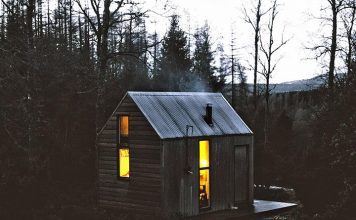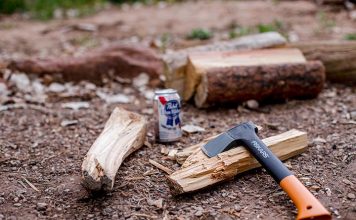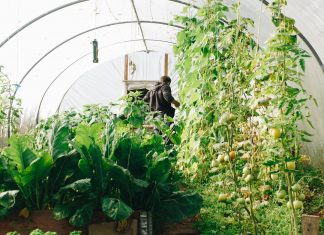 |
|
| Issue #60 • November/December, 1999 |
It is a good life here on the old homestead. We’ve worked hard, and we are enjoying the fruits of our labor. It was tough digging the holes in our hard, rocky ground to set our six solar panels, but they make enough electricity to power lights and a big refrigerator with a freezer. It has taken years, but we’ve finally worked enough humus into our sticky clay garden to make some lovely friable loam. And it took a lot of pruning and fertilizing, but we’ve managed to revitalize our 100-year old orchard to the point where it bears bushels of some of the tastiest apples we’ve ever eaten. Now, another harvest season has almost passed, and the cozy snowed-in days of winter are coming.
We haven’t done haphazardly what we now enjoy; we’ve planned all along the way, and planning for the years ahead will make these coming years fruitful too. In planning, we divide our jobs into three catagories:
1. Those jobs which are necessary for our survival, such as plant a garden, cut firewood before the snow piles up, clean the stovepipe, and cut the weeds around the house that harbor rattlers.
2. Those jobs which help to make us comfortable, such as add to our solar system, perfect our water system, finish building our new house.
3. Those jobs which enhance the property, such as replace some of our old apple trees, add to our irrigation system, paint the barn.
When we think of the jobs to be done in the light of these priorities, it is easier to decide where to start first, and how much effort we need to apply to get the job done. Husband and I are both eager to finish our new house, but because it is a second priority job, we know it will be at least another year in the building. Our old log house, about 1903 vintage, is a roof over our heads, but that roof is getting very leaky and just a little patch up work here and there won’t do anymore. We need to tear the whole roof off and start over, but that isn’t wise as long as the foundation is settling into non-existence. That leaves us at the beginning of a house, which meant a new beginning on another house was the better choice. In the new house we are installing propane heat, with a wood-heating stove as a back-up. We are getting too old to cut the 17 cords of firewood we need every year to heat and cook with in the old house. Our concession to fossil fuel heat was a necessity brought on by old age. It was either make our life easier here or move to town. We couldn’t bear the thought of going to town. Planning has helped us to take into account our age and energies, then to prompt us to get up and do more than wishful thinking.
We are grateful we have been able to live a simpler life here in the backwoods. I’ve noticed how our sense of values has changed over the years. I no longer see a woman’s big diamond ring, or a man’s hand tailored suit, or the fancy car they drive. Frankly, those things don’t interest me. But I do appreciate a bone-warming fire on a cold winter day, a drink of pure water from our spring, the juicy tomato just picked out of the garden.
We no longer even want to go to a movie or a play; it is more entertaining to sit on the front porch and watch the animals, both wild and tame, play. Animals play? Yes, they do. Even the birds play. We didn’t know this until we lived in a place where we could watch them.
For us, it would be a waste of time to go to a gallery to see painted landscape scenes. Every morning we get up and look out our front window on one of the prettiest scenes imaginable. The almost vertical, rocky sides of a mesa rise up on three sides of us, enclosing us in a box canyon. Trees, pines, junipers, oaks, walnuts, box eider, with leaves of every hue of green, dot the cliffs, softening the steepness with their branches. When the first rays of the rising sun touch the trees and the rocks, they turn everything a rich, breathtaking gold. In the evening the setting sun filters through the trees, back lighting them, making them throw longer and longer shadows. In the winter, snow makes a christmas card of it all.
Also, Husband and I have learned to appreciate one another more fully.
Living as we do, we depend on one another much more than we ever did in the city. Our tasks compliment one another. I cook, he feeds the cows. I sew, he saws the boards. I hoe the garden, he runs the backhoe. It takes us both to get in our supply of winter wood. It takes us both to lift the big rocks we need to build a wall.
And it takes us both to put up the siding on the walls of our new house. Not to mention, we keep track of one another’s welfare; so many accidents can happen with our active lifestyle, it is comforting to know that someone who cares is about to check on you.
We appreciate our surroundings, our home, our companionship. Whatever happens in the future, we will always have the sweet memories of our present life.
We would have an empty feeling if we thought all our work on this old place was for the benefit of only the two of us. Through the years we have learned how to do so many things the “old timey” way and most of it had been learned through trial and error, tears and frustration. We don’t want those old ways, and especially the old attitudes, to be lost in time. We want to share what we have learned, what we have accomplished.
Fortunately, our three sons and their families are interested in taking up where we will leave off. But it is not just family we have thought about. When we were younger and up to the emotional challenge, we would take other boys into our home for a summer, boys who needed to be away from the influence of a city gang, or who were becoming rebellious at home. Almost always, at the end of the summer a counselor or a psychologist would call us and tell us what a difference they saw in a boy after he had lived awhile on the old homestead. We think it is the “can do” attitude the boys developed after being in a rustic, remote place where they were encouraged to fix machinery, mend fence, build a shed out of materials at hand, and using their own ideas. Now, our own children are bringing their children to the homestead to learn the same things.
We don’t know whether these young ones will ever live in the country or not, but if they feel capable and confident, they will do well wherever they decide to live. This, we hope, is our legacy.
I’m looking forward to the year 2000-there’s so much yet to do. Robert Frost, the New England poet who wrote about simple country things, must have felt the same way when he wrote the poem “Stopping by Woods on a Snowy Evening.” The first part of the poem tells about an evening when he was riding his horse home through the woods and it began to snow. It was so lovely, he had to stop awhile and watch the snow as it piled up on the tree branches. But in the last stanza of the poem he explains why he goes on:
The woods are lovely, dark and deep,
But I have promises to keep,
And miles to go before I sleep,
And miles to go before I sleep.














